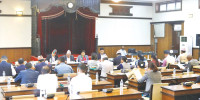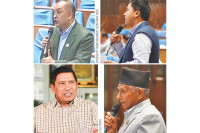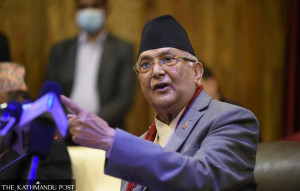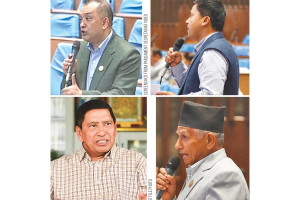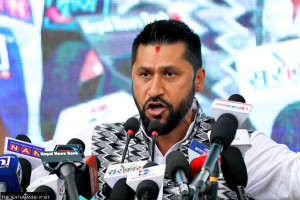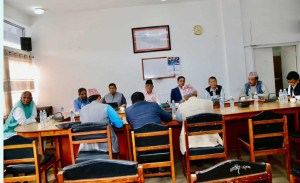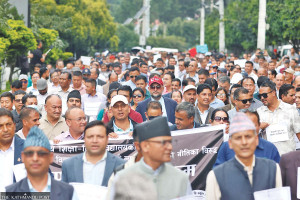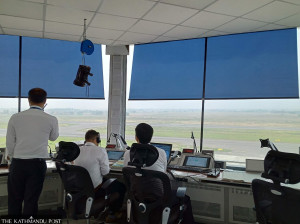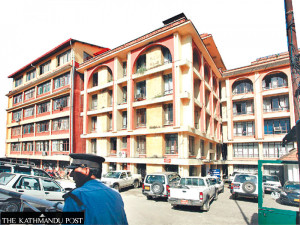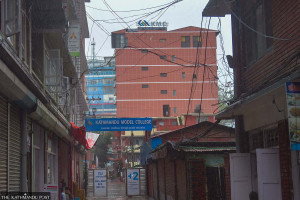Politics
Parties warn coalition over new attempt to oust Deputy Speaker
Opposition threatens mass protests, saying her ouster will push Nepal towards authoritarianism.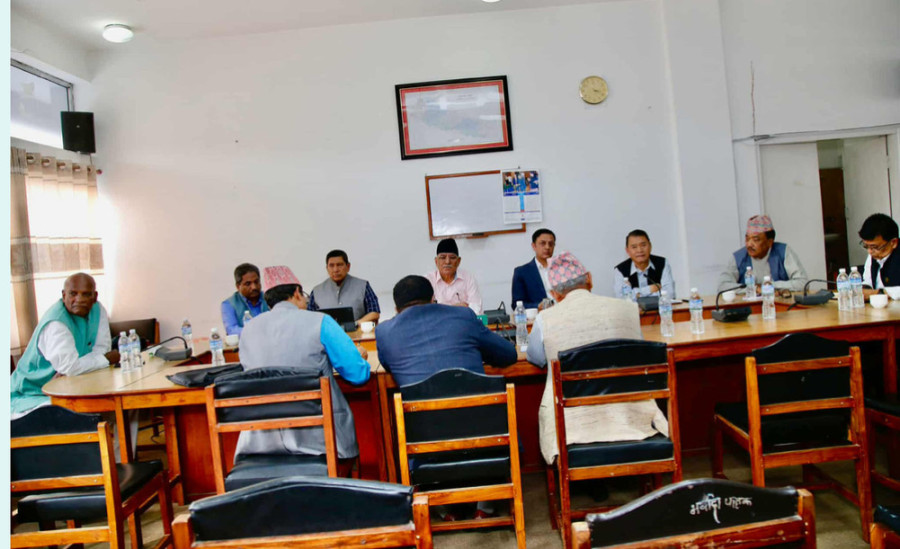
Purushottam Poudel
On Tuesday, the country’s politics suddenly heated up. The reason was the ruling parties, the Nepali Congress and the CPN-UML, ramping up their efforts to remove Deputy Speaker Indira Rana Magar from her post, a move they had abandoned after extensive efforts a year earlier.
To push for her removal, both major ruling parties, the Congress and the UML, collected signatures from their lawmakers.
From the Congress side, however, most leaders from the dissident faction led by Shekhar Koirala, and general secretaries Gagan Thapa and Bishwa Prakash Sharma, did not take part, whereas most UML lawmakers signed.
The ruling Congress holds 88 seats in the House of Representatives, while the UML has 77 seats. To remove Deputy Speaker Magar from her post, a two-thirds majority of the 275-member Parliament is required, which amounts to 184 members.
As the two ruling parties alone cannot achieve a two-thirds majority in Parliament, they also discussed the matter on Tuesday with smaller parties, both within and outside the ruling coalition.
Deputy Speaker Rana Magar was dragged into controversy after it emerged that she had requested visa interview dates from the US Embassy for individuals unrelated to her official role.
On February 26, 2023 Deputy Speaker Rana Magar wrote a letter to the US Embassy requesting visa interviews for herself and five others. Two months later, the letter was leaked, and since then, she has been under pressure to step down from her position.
However, UML Chief Whip Mahesh Bartaula claims that the signatures were not collected to immediately remove the deputy speaker, as is being portrayed. According to him, the party collected the signatures because parliamentary approval would be needed for tasks such as reshuffling members of various parliamentary committees, among other purposes.
He, however, did admit that the ruling parties had discussed actions taken by the Deputy Speaker Rana Magar that, in their view, went beyond the conduct expected of her office.
Bartaula added that no formal proposal to remove Rana Magar had been registered last year, and the situation is no different now.
What has happened, he argued, is that the Rastriya Swatantra Party (RSP) has been taking steps seemingly aimed at putting pressure on the government over the ‘visit visa scam’. In this context, as the Deputy Speaker Rana Magar was elected from that party, the ruling parties have held discussions to ensure accountability for her actions, he explained.
The visit visa controversy, which the RSP has been using to put pressure on the government, followed a raid by the Commission for Investigation of Abuse of Authority (CIAA) on the TIA Immigration Office on May 22. During the raid, the CIAA detained Immigration chief and joint secretary, Tirtharaj Bhattarai, and seized vital documents.
The anti-graft body claims to have uncovered evidence indicating that individuals were sent abroad on visit visas in exchange for large sums of money, in collusion with Bhattarai. The RSP has been demanding that Home Minister Ramesh Lekhak should be held accountable, and the party has been boycotting Parliament since May-end.
UML Chief Whip Bartaula questioned why men had been included in the Deputy Speaker’s delegation for a women-related event, and who would have been held accountable had they travelled to the United States and failed to return.
“The individuals preparing to travel to the US with Magar had reportedly paid money and later taken it back. How does the RSP treat her involvement in this matter?” Bartaula questioned.
Congress Chief Whip Shyam Kumar Ghimire has echoed a similar argument. Ghimire said the signatures were collected because the budget session of Parliament is nearing its end, not with the intent of taking action against the Deputy Speaker.
He also dismissed claims that Congress general secretaries and other leaders had not taken part in the signing as a ‘rumour’, though he too acknowledged that the party, just like the UML, discussed the Deputy Speaker’s written request to the US embassy.
Opposition parties, including the main opposition CPN (Maoist Centre), have warned that removing Deputy Speaker Indira Rana Magar on the basis of a majority would push the country towards authoritarianism.
Speaking to the Post after a meeting of opposition parties held at Singha Durbar on Tuesday, Nepal Shangiya Party Chairman Mahindra Raya Yadav said all opposition forces would unite in protest—both in the streets and in Parliament—if the Deputy Speaker were removed.
“By bringing such charges against the Deputy Speaker without reason, without evidence, and without a solid ground, the ruling side would be paving the way for misrule in the country,” he said, conveying the meeting’s conclusion. “The government should refrain from doing so.”
Meanwhile, the RSP has accused the ruling coalition of trying to use a 30-month-old incident as a political weapon against them. Party spokesperson Manish Jha said that when the letter concerning the Deputy Speaker became public, the RSP had expressed its readiness to cooperate with any investigation. Yet, instead of taking action, the ruling parties have sought to exploit the matter as a political tool, he argued.
He further argued that as Indira Rana Magar had resigned from the RSP before becoming Deputy Speaker, the party was not the authority to take disciplinary action against her.
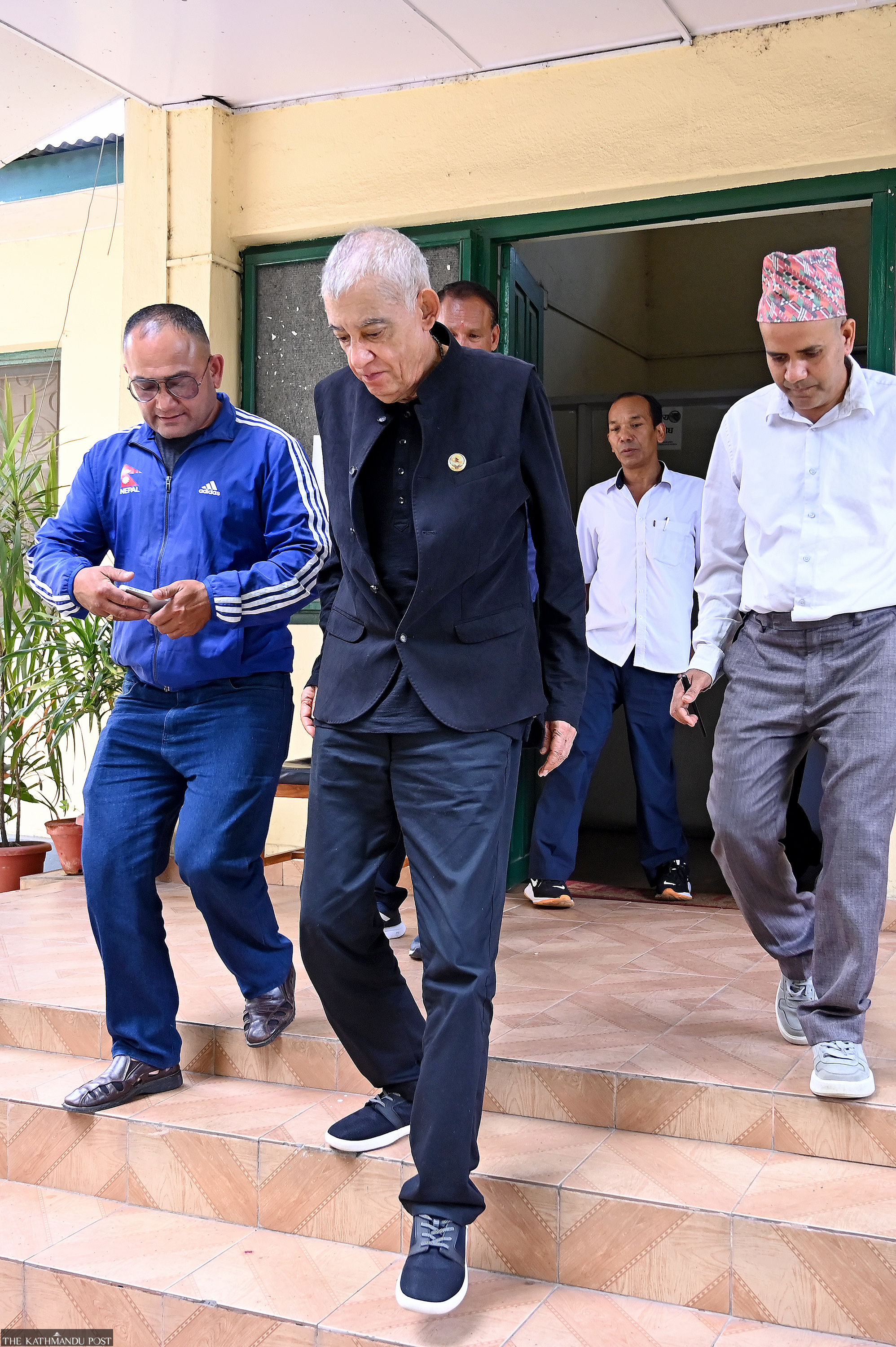
“Although we had already pledged to cooperate with the investigation, the ruling coalition strategically put off the matter so that the issue could later be used when it found itself in some difficulty,” Jha stated.
The letter, written by Deputy Speaker Magar to the US embassy, had requested the embassy to expedite interview dates for six people, including herself. The others named in the letter were Dipendra Gautam, Sushma Lama, Rajesh Lama Tamang, Sujan Magar, and Dhan Prasad Gurung.
Rana Magar had written that she wanted the interview dates to be preponed as they were attending the 67th Commission on the Status of Women session, scheduled in New York from March 6 to 17, 2023.
Last year, after the UML’s main coalition partner, the Nepali Congress, became positive on Prime Minister Oli’s proposal to remove the Deputy Speaker, the fringe parties in the coalition decided to align with the decision of the two largest parties, according to a ruling party leader present at the meeting. However, the ruling parties later suspended their plan to oust Rana Magar.
Article 91 (6)(c) of the Constitution says that the office of the Speaker or Deputy Speaker of the House of Representatives becomes vacant if a resolution is passed by a majority of two-thirds of the total number of members of the House of Representatives that his or her conduct is not compatible with the office.
The RSP claims that the Congress and the UML want to replace Rana Magar with one of their lawmakers after losing their majority in the Constitutional Council. In addition to her roles in the legislature, Rana Magar is a council member who elects the chiefs and members of constitutional bodies, including the Chief Justice of the Supreme Court.
The Constitutional Council, headed by the prime minister, includes the Chief Justice, the Speaker of the House of Representatives, the chair of the National Assembly, the leader of the main opposition in the House of Representatives, and the Deputy Speaker.
Currently, the UML leads the coalition government with the Congress and some fringe parties and holds two seats on the council—Prime Minister KP Sharma Oli and House Speaker Devraj Ghimire (who mandatorily stepped down from party positions upon appointment). The Maoist Centre is equally well represented in the council, with Maoist Centre chair Pushpa Kamal Dahal, as the opposition leader, and National Assembly chair Narayan Prasad Dahal as members.
RSP leaders say removing Deputy Speaker Rana Magar would allow the ruling coalition to appoint one of their lawmakers to secure a majority in the council, even if the Chief Justice stays neutral in constitutional appointments.
Currently, several constitutional posts, including that of the Chief Election Commissioner, are vacant.
The Constitutional Council-related bill, which had been endorsed by both houses of Parliament, was returned by the President. As a result, the council continues to be in a legal limbo.
The bill sent back by the President contained a provision allowing the council to make decisions on the basis of a majority. But Parliament has once again forwarded the bill to the President.
RSP spokesperson Jha said the ruling coalition might have concluded that removing the Deputy Speaker Rana Magar was a way forward, as the prime minister was finding it difficult to push through his decisions.




 20.03°C Kathmandu
20.03°C Kathmandu


